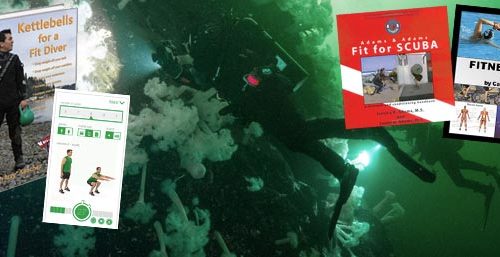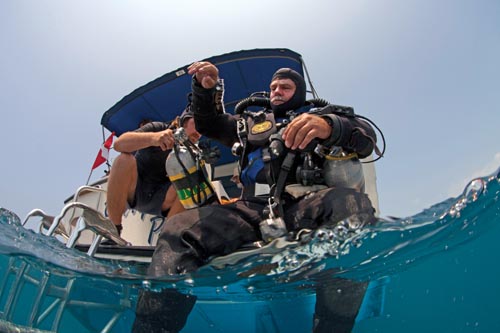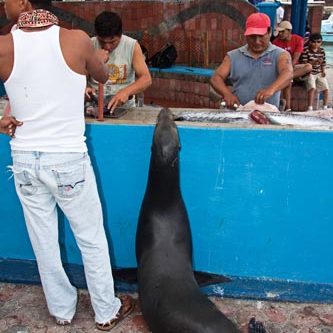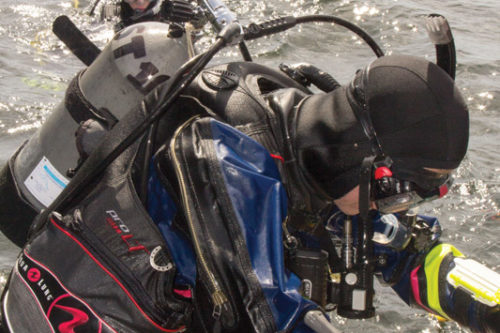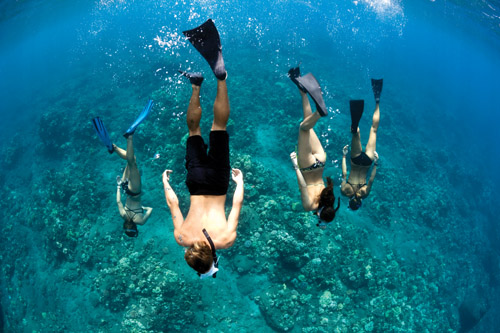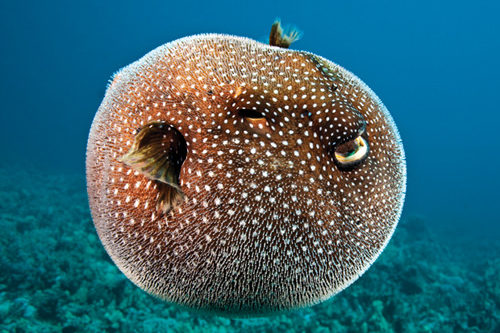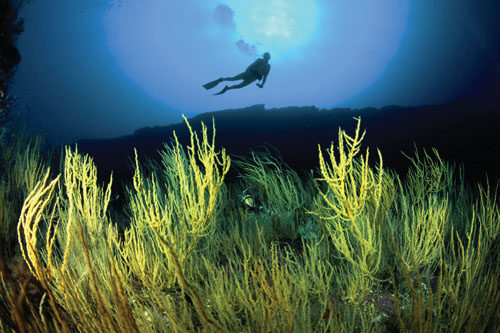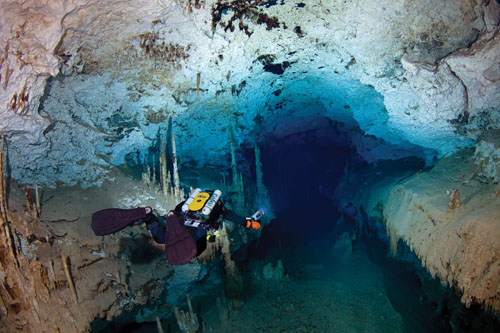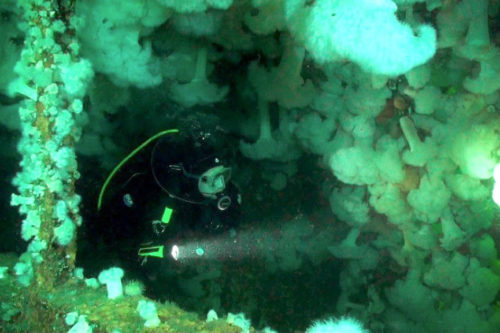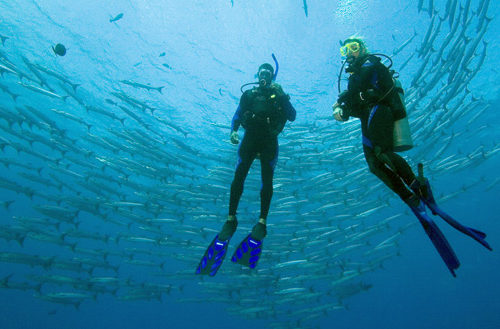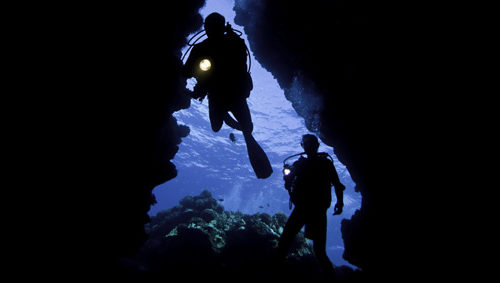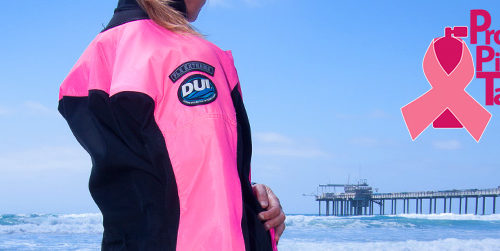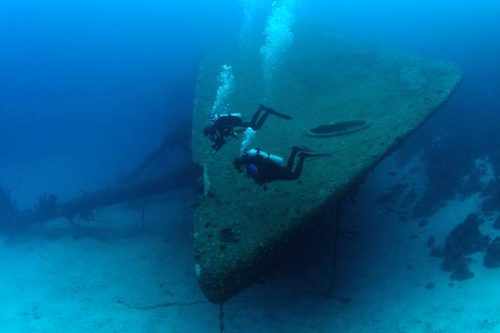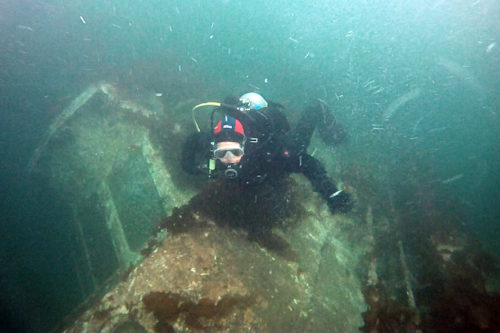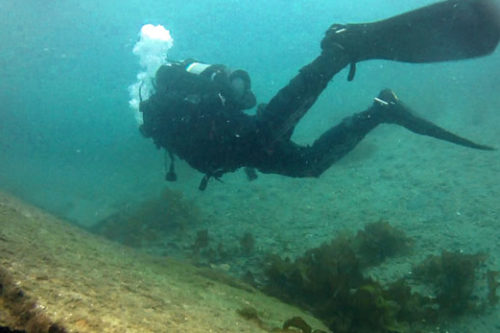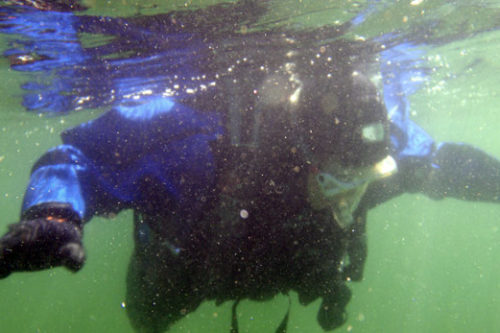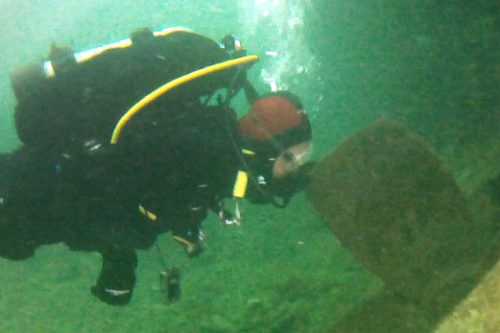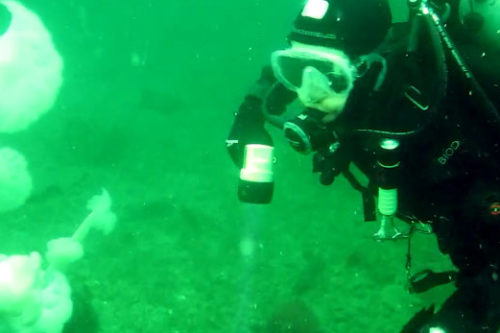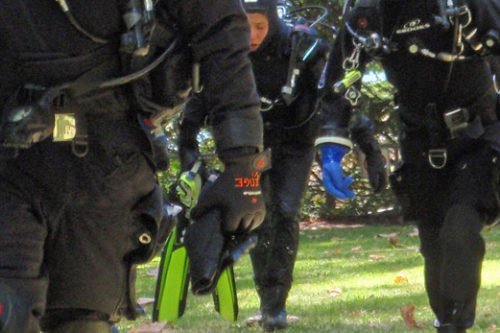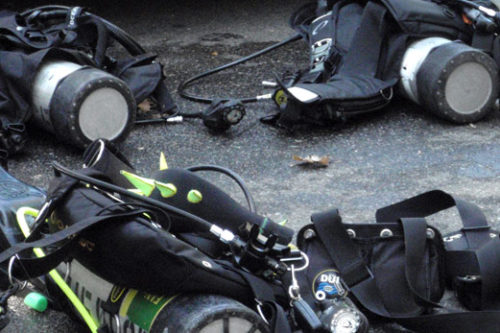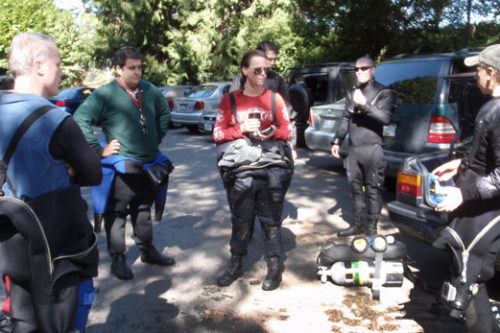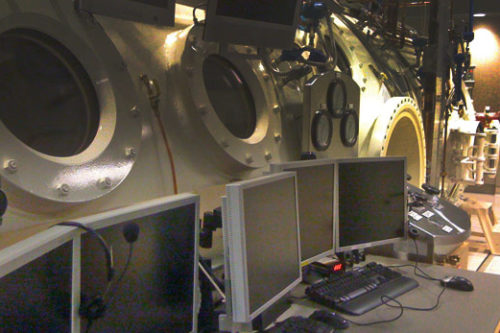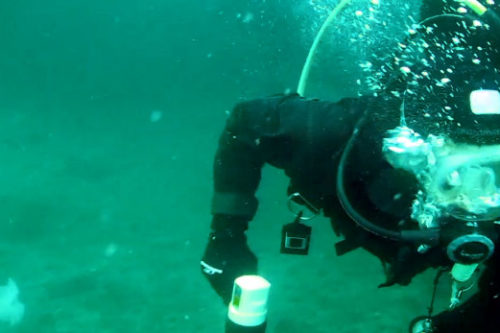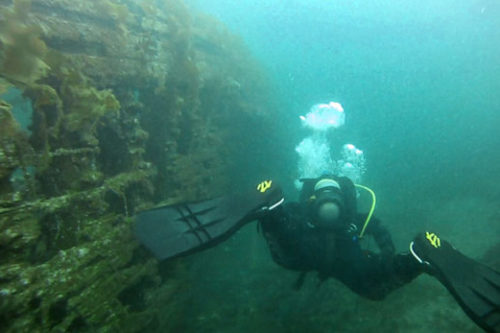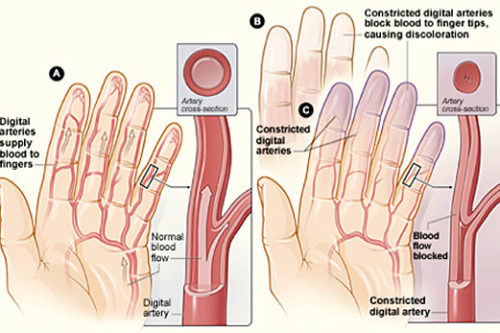Category: Diving Medicine
Get fit for scuba fun
- DIVER Editorial
- 29th July 2014
You should stay fit to dive, not dive to stay fit. It’s sound advice. Here are some resources to help you make the summer scuba season effortlessly fun! Kettlebells for a Fit Diver Fitness Programme by Coach Izzy An complete fitness programme designed specifically for scuba divers, by scuba divers. The plan comprises a book, online videos …
Read MoreMatters of the Heart
- DIVER Editorial
- 16th June 2014
Though myocarditis is relatively common the real incidence rate is completely unknown By Dr. David Sawatzky The most common cause of death in divers while they are diving is a heart attack. These heart attacks are usually the result of coronary artery disease (CAD), in which the arteries in …
Read MoreRebreather Fatalities
- DIVER Editorial
- 29th April 2014
Statistics show that almost always the cause is diver error By Dr. David Sawatzky In the last column I outlined how rebreathers work. There are many brands available and more coming on the market though the basic concepts for all of them are the same. Rebreathers are complicated. There …
Read MoreHealthy Eating and Diving
- DIVER Editorial
- 24th April 2014
By Dr. David Sawatzky A couple of years ago I started writing a column on healthy eating. I believed it to be relevant to diving but there was very little research to clarify that relationship. Recently, several interesting articles have been published on this topic so it is time to …
Read MoreHernias: Issues for Divers
- DIVER Editorial
- 30th September 2013
By Dr. David Sawatzky There are many different kinds of hernias. A hernia is the protrusion of an organ or its fascia through the wall of the cavity that normally contains it. Some hernias are very common and some quite rare. Each has a different implication for the diver …
Read MoreLose Weight Forever!
- DIVER Editorial
- 23rd May 2013
It’s a simple formula: burn more calories than you absorb By Dr. David Sawatzky In the last column I wrote about obesity, the advantages and disadvantages in relation to diving. The bottom line was that obesity significantly increases the risks in a diver. The problem is that most people …
Read MoreObese Divers Beware ‘Saturated Fat’
- DIVER Editorial
- 23rd May 2013
By Dr. David Sawatzky As I write this column it is the middle of the Christmas holiday season. No matter what your beliefs, virtually all of us celebrate the end of the old year and the beginning of the New, and that celebration usually involves eating excessive amounts of …
Read MoreDysbaric Osteonecrosis Part 2
- DIVER Editorial
- 22nd May 2013
It’s rare in the recreational scuba enthusiast but deeper divers and pushing no-decompression limits can put you at risk By Dr. David Sawatzky The lesions of dysbaric osteonecrosis (DON) only occur in a few bones of the body. They are found in the head and proximal shaft of the …
Read MoreDysbaric Osteonecrosis Part 1
- DIVER Editorial
- 22nd May 2013
Will ‘diver’s rotting bone disease’ become more common as technical diving grows in popularity? By Dr. David Sawatzky Dysbaric osteonecrosis (DON) was first identified in the 1940s and was found to be relatively common in the 1970s and early 1980s in some groups of divers but extremely rare in …
Read MorePulmonary Embolism and Blood Thinners
- DIVER Editorial
- 11th November 2012
By Dr. David Sawatzky In DIVER September 2002 I talked about blood thinners and diving, a discussion about deep venous thrombosis (DVT) and the requirement for people diagnosed with a DVT to be on a blood thinner for several months afterwards. To be clear, ‘blood thinners’ do not …
Read MoreBPPV – Sudden onset of vertigo
- DIVER Editorial
- 11th November 2012
By Dr. David Sawatzky Condition most common in divers 60 years and older Recently I’ve been exchanging emails with a diving friend who experienced sudden, severe, nausea, vomiting and vertigo after a dive in Mexico. DAN diagnosed inner ear barotrauma and the local Ears, Nose and Throat (ENT) specialist …
Read MoreUnder Stress
- DIVER Editorial
- 11th November 2012
Some divers handle it better than others, but underwater we all deal with it for better or worse Text by Bret Gilliam The following continues a discussion on diving and stress that appears in the current issue of DIVER Magazine, Volume 37 Number 8, now available on newsstands. …
Read MoreCan diving benefit the health of breast cancer survivors?
- DIVER Editorial
- 13th July 2012
Project Pink Tank is on a mission to get to the bottom of it. Text by Lisa Sonne More than 400 scuba enthusiasts, including open water, advanced, technical, and instructor level divers, are participating in “Project Pink Tank,” a multi-phase investigation into the relationships between scuba diving and the …
Read MoreNitrogen Narcosis: A Critical Conversation
- DIVER Editorial
- 3rd July 2012
Text by Bret C. Gilliam The following discussion picks up from the current issue of DIVER Magazine – Volume 37 Number 4 – now on newsstands. Against the background of an historical perspective and today’s ardent debate on this subject author Bret Gilliam advocates the dissemination of more accurate …
Read MoreEpilepsy/Seizures and Diving
- DIVER Editorial
- 17th January 2012
Diving Medicine By Dr. David Sawatzky A seizure is a sudden surge in electrical activity of the brain that alters how an individual feels or acts for a short period of time. In a classic ‘grand mal’ seizure a person looses consciousness, all of their muscles contract for up …
Read MoreFainting and Diving
- DIVER Editorial
- 17th January 2012
Diving Medicine By Dr. David Sawatzky In the last column we looked at epilepsy and seizures. However, epilepsy and seizures are a relatively rare cause of loss of consciousness. The most common cause of loss of consciousness is fainting (syncope) and it results in one of every 30 visits …
Read MoreLOC While Breath-Hold Diving
- DIVER Editorial
- 17th January 2012
Diving Medicine By Dr. David Sawatzky In this column we will look at the breath-hold diver who suddenly looses consciousness in relatively shallow water. These individuals often die from drowning. This phenomenon has been called ‘shallow water blackout’ but the term should be avoided – it’s confusing. Initially shallow …
Read MoreCoughing While Diving
- DIVER Editorial
- 17th January 2012
Diving Medicine By Dr. David Sawatzky Frequently, I receive reader questions. The following (edited) enquiries raise several issues of interest. Does Nitrox Have a Taste? Should Nitrox taste any different from regular air? I’ve noticed a difference. Air is odourless and tasteless in contrast to Nitrox, which I found …
Read MoreHigh Pressure Neurological Syndrome
- DIVER Editorial
- 17th January 2012
Diving Medicine By Dr. David Sawatzky In the last two columns I reviewed inert gas narcosis. High Pressure Neurological (Nervous) Syndrome (HPNS) is a similar problem that is experienced on deeper dives. It is a difficulty that recreational divers will never experience but advanced technical divers are increasingly performing …
Read MoreWhy Do I Need to Pee Every Time I Dive?
- DIVER Editorial
- 17th January 2012
Diving Medicine By Dr. David Sawatzky Every diver knows that when they go diving they need to pee. They also know that any cold water diver who claims never to have peed in their wetsuit is either lying or has logged very few dives. Finally, it’s fair say that …
Read MoreDehydration and Diving
- DIVER Editorial
- 17th January 2012
Diving Medicine By Dr. David Sawatzky In the last column I talked about the reasons urine production is increased while we are diving and what we can do about it. In this column I will continue that discussion by looking at other reasons divers are almost always dehydrated during/after …
Read MoreSports drinks: You Can Drink and Dive and It Can Help
- DIVER Editorial
- 17th January 2012
Diving Medicine By Dr. David Sawatzky In any discussion on dehydration, the topic of electrolytes must come up. So what are electrolytes? In Stedman’s medical dictionary an electrolyte is defined as “any compound that, in solution, conducts electricity and is decomposed by it; an ionizable substance in solution”. Ions …
Read MoreIs diving addictive?
- DIVER Editorial
- 17th January 2012
Diving Medicine By Dr. David Sawatzky All of us enjoy diving or we would not be doing it. Often we feel better when we are diving. A subset of divers seem to really enjoy diving deep on air. Is diving addictive? Narcosis is a fascinating topic and supports the …
Read MoreFatalities: Inexperience a Big Factor
- DIVER Editorial
- 17th January 2012
Diving Medicine By Dr. David Sawatzky Every year approximately 100 people die in North America while diving, and another 100 die while diving in the rest of the world. Diving is a relatively high ‘risk’ activity. By that I mean there are many ways in which you can be …
Read MoreBuoyancy Control- It’s An Inside Job
- DIVER Editorial
- 17th January 2012
Diving Medicine By Dr. David Sawatzky In the last column I looked at diving fatalities and noted that poor buoyancy control was a significant factor. Buoyancy control is by far the most difficult skill to master in diving and the easiest one to lose. Therefore, in this column I …
Read MoreRaynaud’s Symptoms and Diving
- DIVER Editorial
- 17th January 2012
Diving Medicine By Dr. David Sawatzky I was recently consulted on the case of a commercial diver who presented with cold, white, painful fingers after walking outside on a cold windy day. When the diver was questioned it was discovered that they often experienced similar symptoms while diving and …
Read More- 1
- 2

